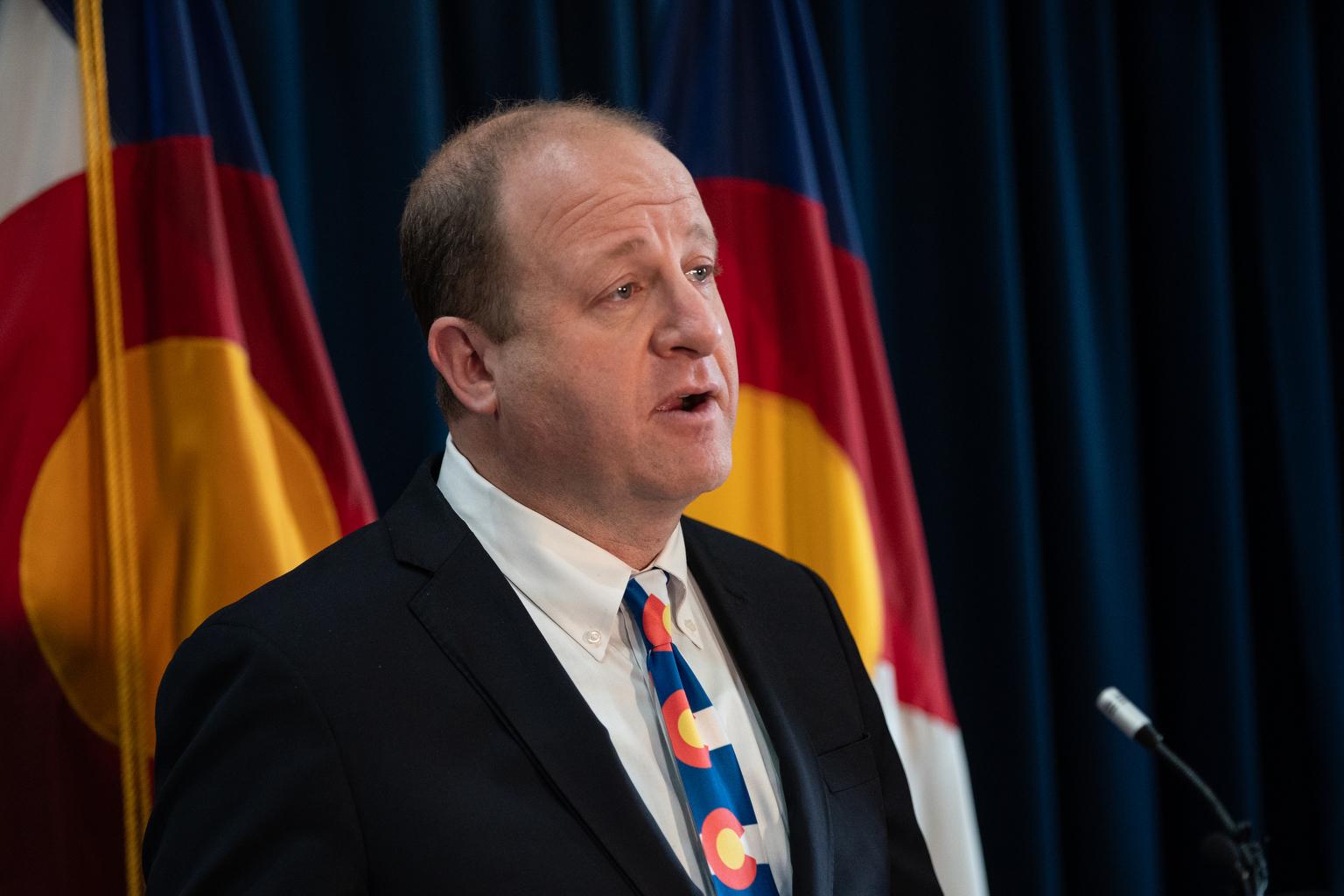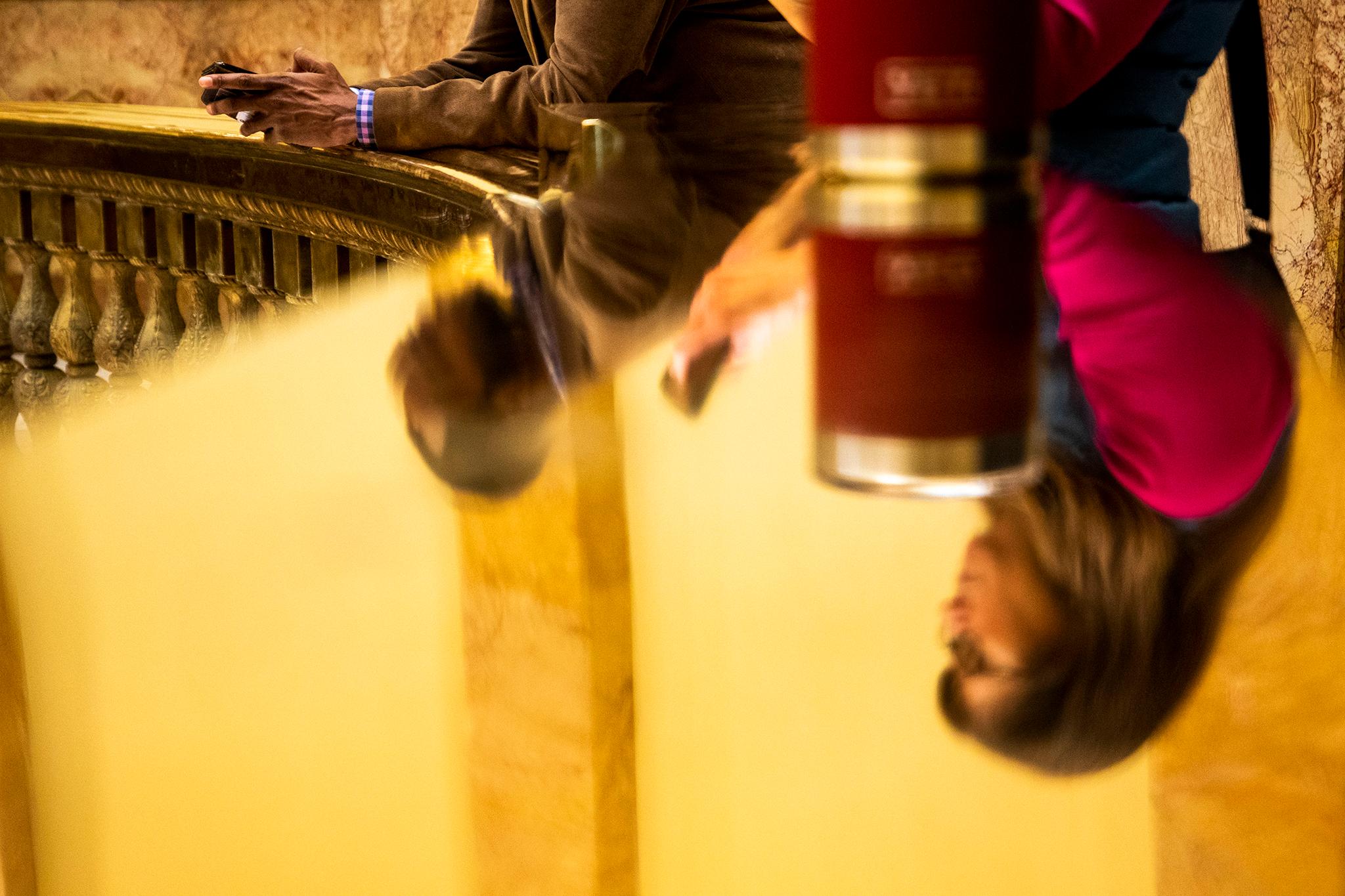
Imagine your workplace is also one of Colorado’s top-rated tourist destinations, where many of the people on the frontlines of the state’s coronavirus response share elevators and hallways with visitors from around the world.
Welcome to the state Capitol, where the governor has his office, the annual legislative session is in full swing and the hallways bustle with lobbyists, concerned citizens, school groups and tourists. Add in the looming threat of the coronavirus and it’s an uncomfortable mixture.
“Ooh, wow, fire code,” joked a male passenger as at least ten people tried to pack into one of the statehouse’s two elevators last Thursday. “Are we going to make it?” asked a woman. The crowded conditions were another reminder of how easily viruses can spread here.
“I began to pray, I closed my eyes because it was just so crowded,” said Lea Steed, whose ride on that cramped elevator left her feeling claustrophobic. She works for the nonprofit Great Education Colorado and was at the Capitol to lobby for more school funding.
While the overfull elevators may worry Steed, the less visible threat of the coronavirus isn’t really changing her behavior yet. Steed said she’s been using more hand sanitizer but isn’t at the point where it would dissuade her from coming to the state Capitol.
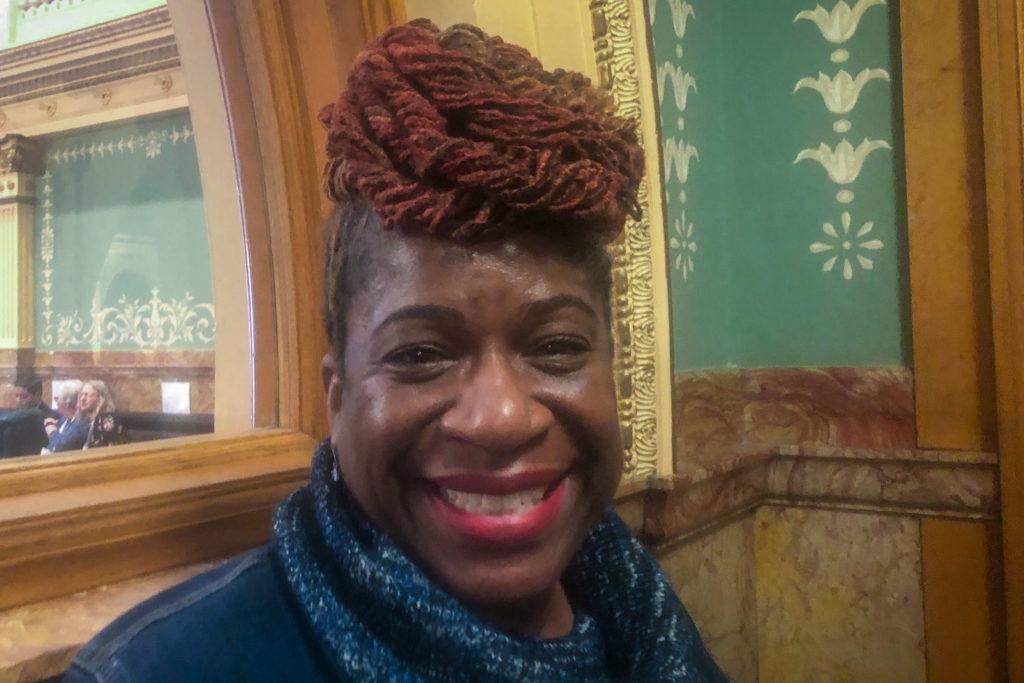
Like a lot of workplaces, the legislature is trying to figure out how to balance the risk of coronavirus and the need to get work done. But that's not easy in a building where the mission includes being open to the public. Capitol tour guides say about a quarter of a million visitors each year visit it from all over the country and world.
“We have a lot of people in the building all the time and we don't really know where they've been or where they're coming from,” said Democratic Rep. Brianna Titone of Arvada. She chairs the Legislative Emergency Preparedness, Response, and Recovery Committee, known to the distress of some as the LEPRR (pronounced: leper) Committee.
The committee will convene a special meeting Wednesday to discuss coronavirus. Titone said some sort of screening process for visitors is something they may consider.
Until Tuesday, there was little visible evidence that coronavirus was changing anything at the capitol. However, shortly after Polis' emergency declaration, Democratic Senate leaders put up notices asking lobbyists to use email or text to communicate with lawmakers, rather than trying to talk to them in person.
Restricting access to the building or potentially shutting it down altogether are among the other options lawmakers will discuss as contingency plans, should it become necessary. The law requires Colorado’s legislative session wrap up in early May, no matter what, but there are ways to make up for a major disruption.
“We could always go into a special session afterwards, if we find that we have things more under control at that point, and reconvene to finish some of the work that we started,” Titone said.
Republican Rep. Lori Saine of Dacono, who also sits on the LEPPR Committee, said she would support a temporary legislature shutdown if it was necessary to keep the public safe. Saine said even under regular conditions the building can be a germ factory.
“When you consider some of our days go extremely long. People are extremely tired or extremely rundown. They may be extremely stressed. That makes it a ripe environment to make people more susceptible to an illness,” Saine said.
Limited options to deal with the threat
It would be up to legislative leaders to decide when and if the threat from coronavirus gets to the point where the state Capitol becomes an unsafe work environment.
The governor's emergency declaration may give legislative leaders the power to suspend the rules and temporarily halt session. They could also potentially conduct some state business remotely, although lawmakers in both parties think that would be logistically difficult. The ability to take long-distance testimony at hearings is limited and the current rules require lawmakers to be present to vote. There’s also the possibility of a self-quarantine, which some members of the U.S. Congress who have been exposed to the coronavirus are voluntarily doing.
“I'm concerned that we don't actually know how widespread [coronavirus] is,” said Democratic House Majority Leader Alec Garnett. He said he’s personally worried enough to have started stocking up on extra groceries, and he wants to be proactive at the Capitol too.
“It's just something that we need to make sure that we're prepared for,” he said. “Do we know what to do if we need to shut down the building? What are we going to do with the Capitol and with the legislative session?”
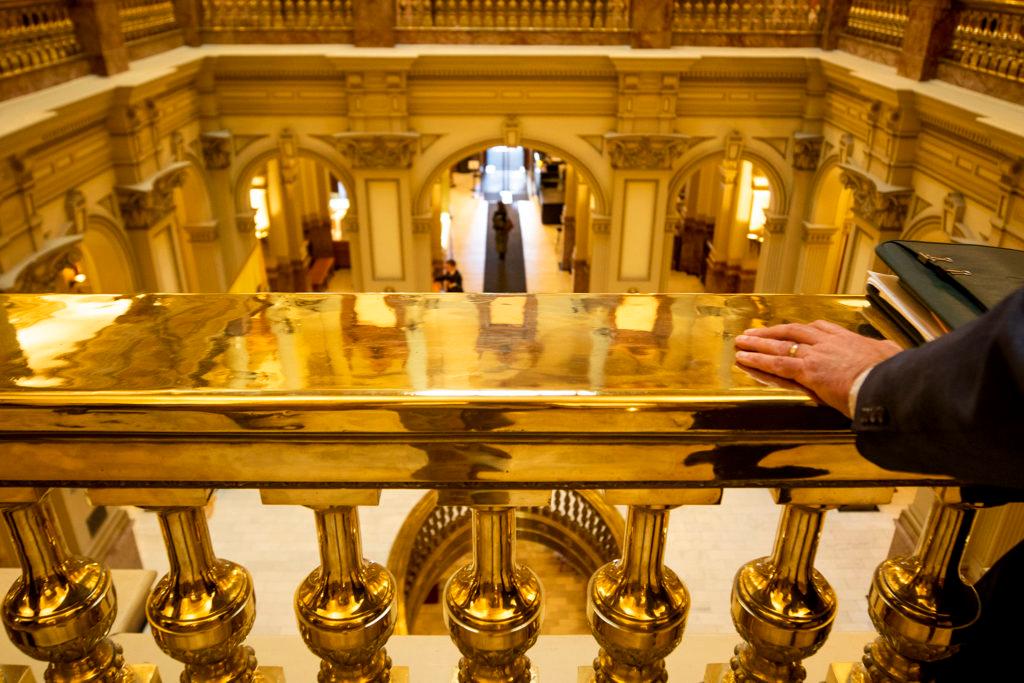
Even though lawmakers debate hundreds of bills, there’s only one thing the state constitution requires them to accomplish each year: they have to pass a balanced budget. The budget debate is scheduled for after the next economic forecast in mid-March.
“It's considered an emergency bill. It would be the number one thing we would have to do if we only could do one thing,” Garnett said.
As for how the budget itself may account for coronavirus, legislative leaders said neither the governor nor the state’s health agency has asked for emergency funding to deal with the outbreak. And so far no special legislation has been proposed.
Regular cleaning continues
For the time being it’s mostly business as usual at the Capitol. A dozen custodial staff work around the clock to keep it clean, from the top of the rotunda to the basement committee hearing rooms.
“We wipe down flat services. We polish the brass. We disinfect the handrails. And that’s all done on a daily basis,” said Department of Personnel and Administration spokesman Doug Platt. “We sort of liken it to painting the Golden Gate Bridge. By the time you get from one end to the other, you’ve got to go back to the beginning and start all over again.”
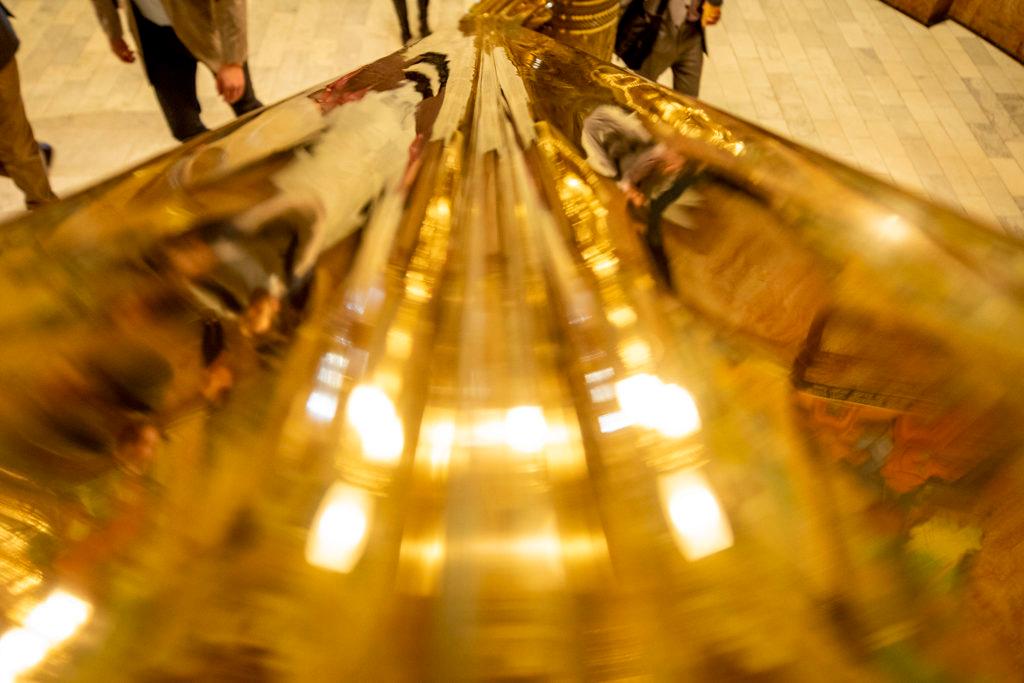
Platt said custodians haven’t adopted any new procedures to clean the most heavily trafficked area but would be open to using additional tools, like hand sanitizer stations.
Colorado’s legislature isn’t the only one grappling with what coronavirus could mean for their functioning. Some states are considering emergency spending measures, special task forces, new ways to measure disease response preparedness, and bills to expand health insurance coverage for treatment.
The New York state capitol has signs next to bathrooms and elevators reminding people to wash their hands for 20 seconds and not to touch their faces. Utah’s legislature put up no-handshake signs. Those warnings may be coming to Colorado soon, but so far, lawmakers here mostly say they hope people will take their own voluntary precautions, even if the capitol’s crowded hallways can make that difficult.
NPR’s Brooklyn Riepma contributed to this report.





